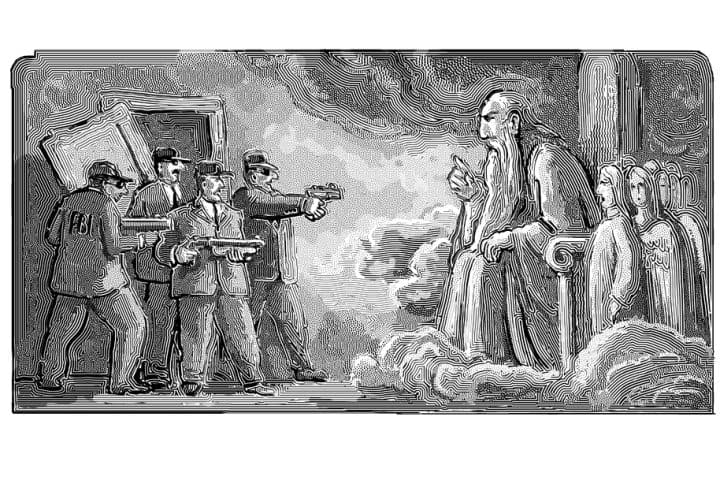“Big Rock Candy Mountain” was one of the first hobo songs, written and recorded by Harry McClintock in 1928. It went to number one on Billboard’s country music charts in 1939; the Depression was good at producing hobos, and at selling music about them. It’s basically a folk song about a hobo’s dream of paradise, “Where the handouts grow on bushes, and you sleep out every night.”
Somehow this vision of “cigarette trees” and “lemonade springs” where “the hens lay soft-boiled eggs” came to mind when I was listening to former President Obama’s “final farewell address,” as he called it—to distinguish it from his last weekly radio address and farewell press conference and farewell remarks to his staff and who knows what else in the farewell line. One got the impression he wasn’t eager to leave.
At his speech at McCormick Place in Chicago, one could see that the job had aged him, as it does every president, but he was in good form, and when he’s in good form there is no political speechmaker in America who can match him. Still, his rhetoric had aged, too, and not for the first time in his administration one could wonder, as they say in showbiz, Do you have anything else? Well, America now has President Donald J. Trump, next to whose art of rhetoric Obama’s can seem calm and almost moderate. “No Drama Obama” overstated it, but All Drama Trump risks leaving the country in a state of nervous exhaustion.
There is much less to Obama’s moderation than meets the eye, or in this case, the ear. Farewell addresses usually contain a warning, and he issued no less than four of them—responding to looming threats to “the state of our democracy.” In reality, the threat he fears most is Donald Trump, whose danger to Obama’s legacy is clear and present.
The first threat Obama pointed to was economic inequality—he blamed the usual suspects: the one-percent, the “long-term trend” in globalized trade, automation—but what really worried him (reading between the lines now) was how expertly Trump had exploited the issue in the campaign. Would the new president be able to pin the blame for stagnant working-class incomes and growing inequality on, gulp, the outgoing president? And so the latter, in a jaded sentence, said Americans are “going to have to forge a new social compact” (the Democrats have been forging one since Franklin Roosevelt) “to guarantee all our kids the education they need” (the system is “flush with cash” but students are “deprived of all knowledge,” Trump noted crisply in his Inaugural) and “give workers the power to unionize” (they have that power already) and “update the social safety net” (part of the new compact; Obama’s repeating himself already) and reform the tax code (raise taxes, etc.). Has a more tired, formulaic, hopeless agenda ever been condensed into a sentence?
Then, the true Obama touch: “We can argue about how to best achieve these goals” but not about the goals themselves. That would be extreme. Moderation is when you get to argue about how best to achieve my goals.
* * *
Concerning race relations, the second threat to our democracy, Obama had an equally depressing message. A post-racial America, he said, “was never realistic.” Forget Martin Luther King, Jr.’s vision. If “we’re unwilling to invest in the children of immigrants, just because they don’t look like us” (emphasis added)—the hypothetical racism Obama imputes to America in many speeches—“we will diminish the prospects of our own children,” because those immigrant “brown kids” are going to be a growing share of the workforce. So we should “invest” in those brown kids because America itself is getting browner—in other words, because they do look like us, albeit the future us. Here is vivid proof why Obama’s America will never transcend what King dismissed as “the color of their skin.”
The third threat was the increasing lack of what Obama called common facts. We need a “common baseline of facts,” and a common trust in pragmatic reason, to prevent American democracy from degenerating into fanatical polarization, he warned. For example, he said, climate change is real. We can argue about how best to solve the problem. But to “deny the problem” is irrational and downright un-American. As his mother used to tell him, he recalled, “reality has a way of catching up with you.” Indeed it has, and the reality is that smuggling in an appeal to presumed authority (“settled science,” Obama likes to call it) is no way to conduct, much less to win, an argument. In fact, it’s denying the problem.
His final warning was that Americans mustn’t take democracy for granted. Amen to that. But isn’t chanting dutifully “Yes, we can!” as the crowd did at the end…a sign of taking democracy for granted? As Benjamin Franklin warned, “He that lives on hope dies fasting.” A diet of hope leaves one dreaming of “a lake of stew / And of whiskey too… / In the Big Rock Candy Mountain.” But there is no such mountain, and never was.



